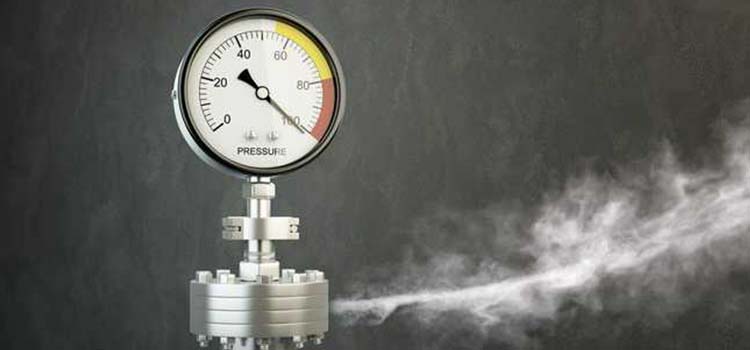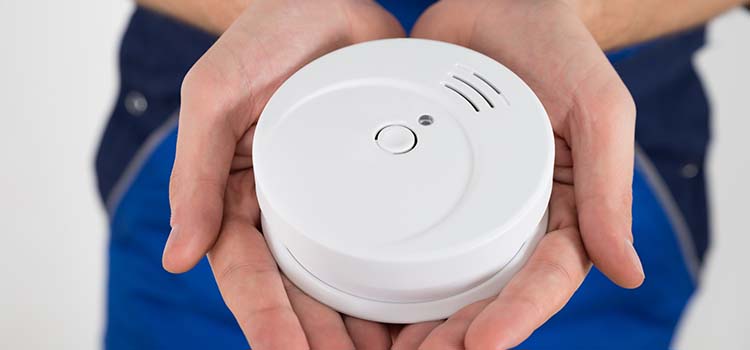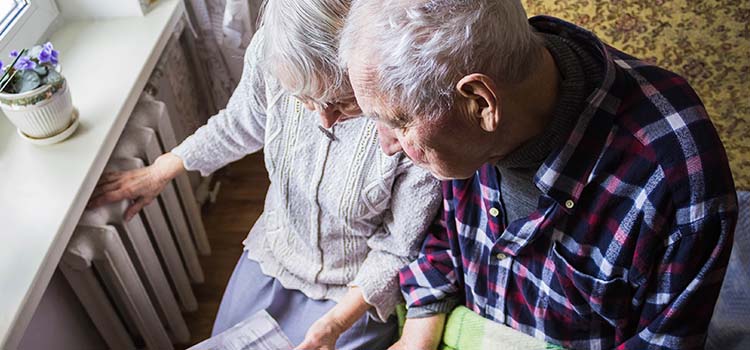
The use of natural gas has grown tremendously, with it accounting for 21% of global fuel consumed.
In this article, you’ll discover the signs and symptoms of a gas leak in your home to avoid these dangers. Learn the signs to protect yourself and your family.
What Is A Gas Leak?
Natural gas is considered a fossil energy source from under the earth’s surface. Its main component is methane, but it can contain non hydrocarbon gases and natural gas liquids as well. It comes from plants and animals that were initially in thick layers on ocean floors, the earth’s surface, and other areas.
These layers were then buried under silt, rock, and sand. Heat and pressure changed some of it into natural gas, oil, and coal. A gas leak is when natural gas leaks from a pipeline and then into an area where it shouldn’t be.
Leaks are considered very dangerous since they can build into an explosive concentration. They can kill vegetation and trees, cause explosions and fires, and might release greenhouse gases into the atmosphere.

Gas Leak Symptoms And Signs
When you’re looking for gas leak signs in your home, keep in mind that it might not have physical signs or smells. You can find a damaged gas pipe, dead houseplants, and if a smell is present, it’ll be rotten eggs and sulfur. Near the gas line, you might see a white or dust cloud, and a whistling or hissing sound.
Since natural gas can enter your home from appliances or gas lines, it can increase your gas bill.
Physical Symptoms
Gas leaks cause a reduction in oxygen which can lead to certain physical symptoms.
If you’re experiencing natural gas poisoning you might experience:
- Ringing in your ears
- A reduced appetite
- Pain in the chest
- Nosebleeds
- Blistering or pale skin
- Flu-like symptoms
- Dizziness
- Breathing difficulties
- Lightheadedness
- Drowsiness
These are some symptoms. You can experience some, all, or other symptoms. Your pets can also be affected by a leak. If they’re vomiting, having breathing difficulties, lethargy, or loss of appetite, they could be affected as well.
Odor Fade
Certain chemical or physical processes can cause a loss of scent for natural gas. Odor fade can be caused by absorption, adsorption, oxidation, or a combination of them.
It’s more likely to occur if there’s moisture, air, cutting oil pipe thread compounds, liquids, mill scale, rust, or other substances. If you use higher gas pressure and if the gas flow is limited it can occur as well. If a steel pipe has been manufactured recently and hasn’t been used for natural gas yet that can cause odor fade as well.

Carbon Monoxide Poisoning
Carbon monoxide poisoning symptoms can be similar to those of a gas leak. If you’re exposed to carbon monoxide, it can be fatal. If you think you or your loved one are experiencing carbon monoxide poisoning, seek emergency medical treatment immediately.
Symptoms can include:
- Red lips
- Pink skin
- Nausea
- Lack of muscle control
- Fatigue
- Headaches
- Chest pain
- Abdominal pain
- Dizziness
You can experience some or all of these symptoms. Seek emergency medical treatment, and contact your certified gas professional immediately.
What To Do If You Suspect A Leak
Pay attention to your symptoms as you’re moving around the home from room to room. Stay cognizant of how you feel when you leave the home and come back. If you develop a headache when you come home, that could mean a leak.
For mild leaks, turn pilot lights off, open your windows, and contact your gas company. They’ll tell you what to do and whether the gas meter needs to be turned off.
If you’re noticing symptoms or a strong odor, leave your home immediately. Remember that gas is volatile and can cause an explosion. Call the emergency number for your utility company immediately in a safe location.
If you’re noticing severe symptoms, go to the emergency room immediately. Leave all of the doors open in your home and ensure you and your family including your pets are evacuated. Never let the situation go unreported.
If You Need To Turn Off Gas
In case of an emergency and you need to shut off your gas, you’ll want to locate your natural gas meter. Try to locate it before an emergency so you’ll be ready. You can have an underground, cabinet, under-the-house, or multiple meters. Only turn off natural gas if you hear gas escaping or can smell it.
Only turn it off if it’s safe to do. Next, you’ll see a pipe from the ground to the meter. Locate the shut-off valve. Use a 12-inch or bigger adjustable wrench, and turn the valve 1/4 in either direction. Turn it until it’s crosswise to your pipe.
Don’t turn the gas back on yourself, wait for a certified professional. Natural gas shut-off valves are a safety feature to incorporate. If a leak happens at an appliance, you can turn off the natural gas at that appliance. Always use caution when you touch risers, meters, and any other attached components.
What To Avoid Doing
Never try to repair a gas leak on your own, always call and wait for help. Don’t keep your doors closed or make calls from your home. Don’t think someone else will report the leak. During a leak, don’t use household appliances or turn the lights on and off.

Preventing A Leak
Always keep your children away from natural gas appliances. It’s also a good idea to teach them about natural gas safety. Keep areas around appliances unblocked and clean for proper airflow. Natural gas can build up if it can’t circulate through vents. Ensure you have carbon monoxide detectors on each floor and in the bedrooms.
Have at least one fire extinguisher in your home as well as heat and smoke detectors in case a fire was to occur. Keep flammables and chemicals away from your gas appliances. Have gas lines, chimneys, vents, furnaces, and gas appliances inspected every year by qualified professionals.
Gas Safety Tips
Keep a fire extinguisher in your kitchen. Don’t store combustible materials such as gasoline, solvents, or paints in the same area as your oven, furnace, water heater, range, or other gas appliances.
When a pilot light is out, shut off the gas at the appliance gas shutoff valve. Before relighting the appliance pilot light, wait 5 minutes for the gas to disperse. Have a crescent wrench or adjustable pipe near your main shutoff valve in case of an emergency.
Never keep flammables near your oven, range, heater, furnace, or gas appliance. Flammable materials can include newspapers, laundry, brooms, and mops. Don’t use a candle, match, or flashlight to look for a gas leak. Don’t turn electric switches off or on if you think there’s a leak.
Let an inspector locate and fix leaks, and tell you when it’s safe to return to your home. If a leak is on the inside, still have your certified inspector check the outdoor pipelines as well. Whether it’s an outdoor or indoor leak it can be just as dangerous.
If you suspect a leak, go to a safe location and contact a natural gas professional immediately.
What To Do After A Leak
Wait for a certified inspector to let you know when it’s safe to return to your home. Ensure you’ve installed carbon monoxide alarms. Air out the house before re-entering. If you let a leak go, you can suffer certain long-term effects.
Certain long-term effects can include respiratory or mood-related problems or depression. Consult with your doctor after a gas leak.
Natural Gas Leaks In The Home
When you think you’ve found a gas leak in your home, don’t panic. Ensure you follow all of these safety procedures and contact a qualified professional immediately.
Are you ready to protect yourself and your loved ones from carbon monoxide poisoning? Check out our carbon monoxide detector today and have peace of mind knowing we will help protect your home.
